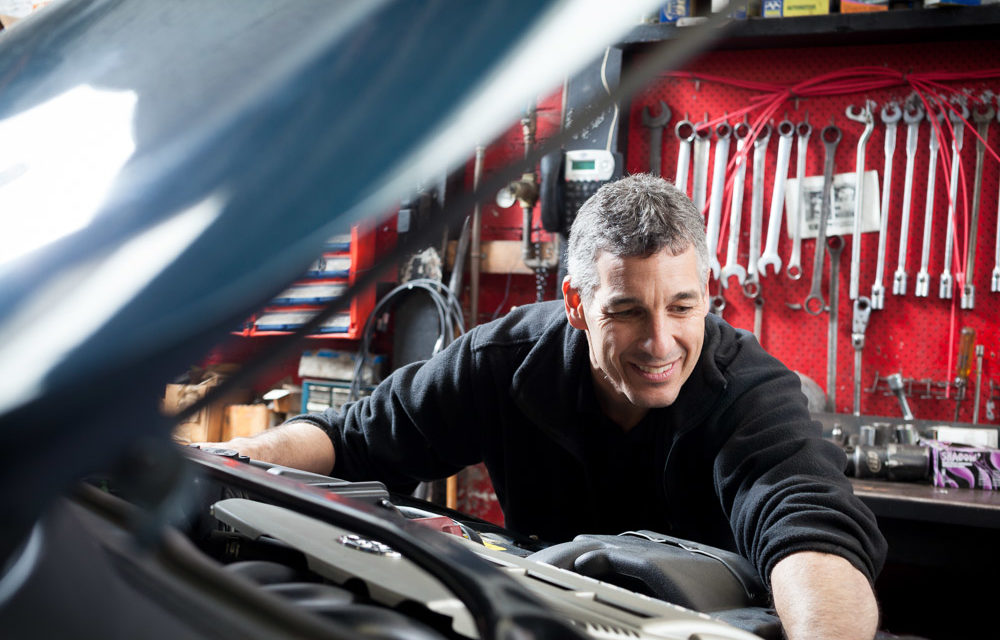All Categories
Featured
A well-kept engine is the key to your car's longevity and peak efficiency. Regular engine tune-ups not only enhance gas performance yet likewise minimize the likelihood of unexpected malfunctions. Whether you're a cars and truck fanatic or a person that simply intends to prevent costly repairs, these engine tune-up ideas will maintain your car running like a desire.

- Change the Glow Plugs. The ignition system fire up the air-fuel blend in your engine, and their efficiency directly impacts engine efficiency. Gradually, trigger plugs can break, resulting in misfires, minimized gas economic situation, and slow-moving acceleration.
Throughout a tune-up, evaluate and replace stimulate plugs if they reveal signs of wear, such as residue build-up, deterioration, or splits. Relying on your automobile, ignition system might require to be changed every 30,000 to 100,000 miles.
- Evaluate the Ignition System. Your vehicle's ignition system, which consists of the ignition coils, supplier, and wires (if applicable), is accountable for delivering the spark that powers your engine. Defective ignition components can trigger beginning concerns and harsh engine operation.
Look for harmed or used components and replace them throughout your tune-up. Ensuring a healthy and balanced ignition system will certainly improve engine integrity and efficiency.
- Clean or Change the Air Filter. A tidy air filter permits your engine to "take a breath" correctly by ensuring a constant flow of tidy air. Over time, dust and debris can obstruct the filter, minimizing air movement and influencing gas effectiveness.
Check the air filter throughout a tune-up and change it if it's dirty. For vehicle drivers in dirty or contaminated locations, air filters might require to be altered extra frequently.
- Evaluate and Tidy the Gas System. The fuel system, including the gas injectors, fuel pump, and fuel lines, can build up down payments with time, lowering gas delivery and engine performance. Utilize a fuel injector cleaner or have your system expertly cleaned throughout a tune-up to restore appropriate capability.
Regularly preserving your fuel system makes sure far better burning and optimizes your engine's effectiveness.

- Change the Engine Oil and Oil Filter. Engine oil is necessary for lubrication, air conditioning, and decreasing rubbing in between relocating parts. In time, oil degrades and accumulates debris, losing its performance.
During a tune-up, replace the engine oil and oil filter. Adhering to the producer's recommendations for oil kind and modification intervals is essential to maintaining your engine in ideal problem.
- Check the Belts and Tubes. The belts and tubes in your engine compartment play critical duties in powering parts like the generator, water pump, and cooling system. Deterioration in time can bring about cracks, fraying, or leakages.
Examine the problem of belts and hose pipes during your tune-up and change any that reveal indicators of damages. Proactively dealing with these concerns can prevent pricey repair services and unanticipated failures.
- Check the Battery and Electric System. A weak or failing battery can leave you stranded. During your tune-up, test the battery's voltage, check the terminals for corrosion, and make certain the connections are limited.
Additionally, have the alternator and starter inspected to ensure they're functioning effectively. Resolving electric system concerns early can conserve you from inconvenient surprises.
- Examine the Air Conditioning System. The air conditioning system avoids your engine from overheating, which can trigger serious damage. Throughout a tune-up, examine the radiator, tubes, and water pump for leakages or wear.
Flush and replace the coolant if it's unclean or has surpassed its preferred life span. Proper cooling system upkeep helps your engine run within its ideal temperature level array.
- Address Dashboard Caution Lights. Modern cars are equipped with advanced analysis systems that light up warning lights when issues arise. If your control panel displays any type of warning lights, such as the check engine light, address them during the tune-up.
A professional technician can use analysis devices to recognize and fix the problem, preventing little problems from escalating.
- Maintain Your Engine Clean. A clean engine runs cooler and is simpler to evaluate for potential issues. Eliminate dirt, grease, and crud from your engine bay throughout a tune-up. Make use of a degreaser and a mild brush for cleansing, and stay clear of splashing water straight on electrical components.
Verdict: Tune-Ups Are the Trick to Engine Longevity. Regular engine tune-ups are an investment in your automobile's health and wellness, efficiency, and performance. By replacing used parts, cleaning important systems, and dealing with issues early, you'll guarantee your auto stays trusted for several years to come. Whether you're tackling the tune-up on your own or taking your vehicle to a relied on auto mechanic, adhering to these suggestions will keep your engine going for its finest and help you stay clear of unanticipated fixings. A well-kept engine doesn't simply save you cash-- it guarantees tranquility of mind when traveling.
Latest Posts
Car Repair Experts Today! at MO
Full Circle Strategic Marketing - Skyrocket Revenue with Insightful Marketing Solutions
Strategy Your Perfect Occasion at Yesterday's Creekside Tavern